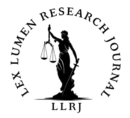Written by Nishant Tripathi,
Dr. Ram Manohar Lohiya National Law University,
Novemeber 2024
Introduction
In today’s digital era, data is central to economies, governance, and human rights, forcing nations to balance economic growth, national security, and privacy. Data localization has become a key regulatory tool in this effort, particularly in India, where the debate is intensifying as the country seeks a leading role in the global digital economy even after being the third world nation. Proponents argue that storing data within national borders strengthens economic resilience and sovereignty, while critics warn of potential harm to international trade and innovation. Competing interests must be navigated through legal frame work, ensuring national security and economic growth while protecting privacy and adhering to international law.
Understanding Data Localization
Data localization, or Data residency laws, mandates that data pertaining to a nation’s citizens or residents must be collected, processed, and stored within the territorial jurisdiction of that nation, although subsequent transfers of such data abroad may be permitted subject to stringent compliance with locally prescribed privacy or data protection frameworks. Typically, such transfers are contingent upon adherence to requirements such as obtaining explicit user consent and providing sufficient notice regarding the intended use of their information as prescribed under rule 7 of the IT Rules 2011. This regulatory approach is grounded in the principle of data sovereignty, which posits that specific categories of data must be governed by the legal frameworks (IT Act, DPDP Act) applicable to the data subjects or processors within a jurisdiction.
In consideration to data sovereignty, it ensures that personal or financial data related to a nation’s citizens or residents should be processed in accordance with standard as laid and mandated in IT act and DPDP act or related guidelines, rules etc., which further intensifies this regulatory scope by mandating that the initial collection, processing, and storage occur strictly within national boundaries. This concept has garnered significant attention in recent times, as the government is actively advocating for the imposition of more stringent data localization norms through a series of legislative efforts like National Data Governance Framework Policy 2022 and the Digital Personal Data Protection Act (DPDPA) 2023, reflecting an emerging focus on bolstering national data control and security.
National Security Concerns: Protecting Critical Data
Data localization encompasses an important initiative promoting national security, particularly in the context of cybersecurity related threats such as hacking, data breaches, brute force attacks, and Distributed Denial-of-Service (DDoS) assaults. As data becomes an invaluable and important resource prone to several threat and resource in numerous modern applications, there arises a necessity of robust data protection.
By mandating that data be stored within a nation’s territorial boundaries, data localization enhances the state’s ability to exercise sovereign control over cybersecurity protocols and enforce compliance with domestic regulations. In an event of such breach or threat, authorities can swiftly access critical information, thereby mitigating response delays and enhancing incident management capabilities. Moreover, localizing data infrastructure significantly reduces the risk of espionage and unauthorized surveillance by foreign entities, as data housed in external servers may be vulnerable to extraterritorial manipulation or misuse. The retention of data within national borders ensures that its integrity can be rigorously monitored and controlled under domestic legal frameworks, thus strengthening the overall security apparatus. By centralizing control over data governance within a nation’s jurisdiction, data localization becomes a key instrument in fortifying national security interests against emerging cyber threats.
Digital Sovereignty and Economic Growth
It is the concept that a country has the complete right over its generated data. Due to sovereignty rights, personal data of citizen of one country should be controlled solely under the laws of that country; it is not relevant where it is stored and where it is being processed. In short, digital sovereignty speaks to greater autonomy at a time when most data is stored and processed on foreign servers, mainly those of the US and China. For instance, it is estimated that around 92% of data in the Western world are stored on servers owned in the U.S., thus raising questions concerning jurisdiction and control over personal information. Data sovereignty actually states the rights of the data subject along with the corresponding responsibilities of the organizations depending on the geographical location of the data.
Data Localization also plays a pivotal role in advancing India’s economic growth. The control over data is a critical financial resource in today’s rapidly evolving world. Data localization can help foster growth domestically, stimulate innovation, and strengthen India’s standing in the global digital ecosystem. Data localization will create new opportunities for domestic players, encouraging the development of local data centers, cloud computing infrastructure, and technological services. Various MNC’s that operate cloud services may need to invest in expansion of local data centres to comply with data localization laws. This creates demand for infrastructure development, local IT services, and skilled professionals, which in turn boosts job creation, technology transfers, and innovation. By keeping data within the country India also ensures that domestic firms would have easier and faster access to data and enable them to build competitive services tailored to local needs, keeping data within the country. Data localization incites multinational companies to invest in India by building local infrastructure and meeting legal requirements, creating ripples which can stimulate the wider tech ecosystem.
The legislative Void
Even while India’s Digital Personal Data Protection Act (DPDPA) touches upon data protection, an emerging view demands a stand-alone law directed toward data localisation. The Digital Personal Data Protection Act 2023 presents a more flexible and security-oriented model, but that too does exactly the same, that is giving over the government control over the data and thus begetting regulatory uncertainty. The present framework cannot help address the precision and scope that would be needed to address at once the need for national security, economic growth, and privacy rights. A bit specificity over data localization laws would bring much clarity concerning when and how data needs to be stored locally and under what conditions it can be transferred abroad. The DPDPA allows discretion to the government in classifying whether data should or should not be stored locally. The direction will lead to confusion and chaos as the domestic as well as global player will find it tough to get through a changing legal scenario where the requirements of data storage will be dependent upon government decree. For the local players uncertain regulatory provisions may act as a hurdle to their growth aspects.
Balancing of Interests
While there are obvious advantages of such a law, the legislation also brings along several challenges policymakers need to take careful consideration of. A prime challenge is the cost of compliance, particularly for international companies that would incur significant expenses in setting up data storage infrastructure in India. As an illustration, a data center is costly to set up and maintain. The need for duplicating infrastructure across multiple jurisdictions can be so expensive when companies operate their business across multiple countries. This can, in turn pass on to consumers. The difficult part is, however, coming up with a balance between national security and privacy rights. Where data localization increases national security by storing critical data on local servers, the possibility of surveillance and unreasonable exercise of authority by the government exists. Local data storage may provide access to a citizen’s private information by authorities. Thus, any localization law has to go with high safeguards so that privacy protection of a citizen is maintained while ensuring the national interest of security. At times, data localization seems to be a protective policy. According to several critics, making it obligatory for businesses to store data locally jeopardizes innovation due to a curtailment of cross-border data flows and collaboration. This might, in turn, lead to India’s isolation in digital markets and technological progress at global levels and render the country uncompetitive in the new digital economy.
Conclusion
Data localization has some benefits in national security, economic growth, and even in rights to privacy while simultaneously posing several threats. It comes with its huge benefits that include, better control of sensitive data, protection against cyber threats, and reduced foreign surveillance risks. Its localising data infrastructure will also boost economic growth, which will progress further from creating domestic data centres and driving innovation and creating jobs. However, on the operational side, the cost of localization of data to business enterprises is too high, especially for multinationals which must spend a lot of resources in constructing infrastructure. This might hike the running costs, and thus make them stretch consumers’ pockets to bear. In addition to ensuring national security, the local storage might result in government overreach, and eventually infringe citizens’ rights to their private lives about respecting it. The DPDPA 2023 of India does discuss some issues on data protection, and the elements of uncertainty are involved in the regulation matters due to the lack of dedicated and well-defined localization rules. Unclear direction may bar businesses from becoming compliant with dynamic legal requirements about business activities both at home turf and abroad. Conclusion: national security and economic growth cannot be actualized through data localization but any legislation passed should maintain harmony so that it does not infringe on the right to privacy or stifle innovation. There is a need for a well-defined and transparent regulatory framework which will ensure the good of national interest realized through data localization does not necessarily compromise economic competitiveness or individual freedoms.


